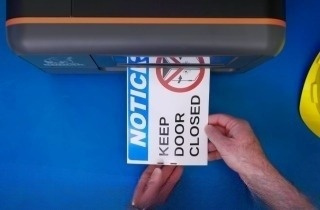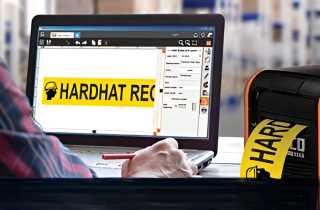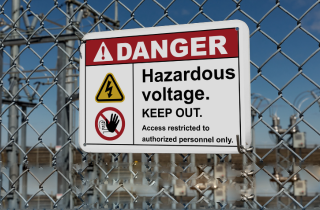Ammonia Accidents Threaten Worker Safety, Business Operations

A pair of workers at a food processing plant in Kansas were attempting to drain anhydrous ammonia from refrigeration equipment when a pipe ruptured and released a toxic cloud of pungent, colorless gas. One of the men died and the other had severe injuries related to inhalation, skin contact, and eye irritation. While anhydrous ammonia has a broad range of industrial uses, it can be toxic to workers, causing blindness and even death. In some extreme cases, mishandling of ammonia causes neighborhood evacuations and facility explosions. There have been several ammonia accidents at numerous businesses already this year that have been reported to OSHA and are gaining media attention. The damage ammonia can cause workers, businesses, and the local community can be massive if proper quality control measures are not in place, such as pipe marking, hazardous material and maintenance management, and personal protective equipment (PPE).
Control the Hazards
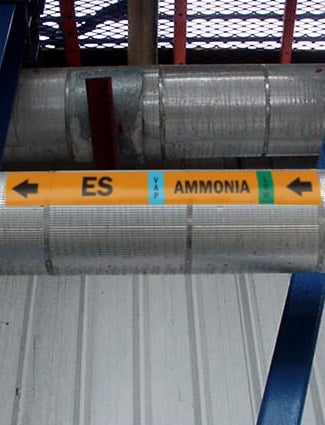 Over a span of 10 years, that same Kansas food processing plant has had at least three fatalities related to anhydrous ammonia as well as several injured workers and $4 million in fines and penalties. Anhydrous ammonia is widely used as refrigerant in industrial facilities such as animal processing facilities, cold storage warehouses, beverage processing facilities, wineries and breweries, petrochemical facilities and more. Although industrial use represents 20% of ammonia consumption, demand increases by 5% every year.
Over a span of 10 years, that same Kansas food processing plant has had at least three fatalities related to anhydrous ammonia as well as several injured workers and $4 million in fines and penalties. Anhydrous ammonia is widely used as refrigerant in industrial facilities such as animal processing facilities, cold storage warehouses, beverage processing facilities, wineries and breweries, petrochemical facilities and more. Although industrial use represents 20% of ammonia consumption, demand increases by 5% every year.
To help control hazards with this chemical, companies should review ammonia security plans. Find resources that can assist in ammonia hazard training such as videos or review pipe marking standards for ammonia-based refrigeration systems. OSHA has an online tool to help with ammonia refrigeration receiving and storage as well as emergency response work. Here are some simple tips to consider:
- Review maintenance plans - Trained and certified staff should oversee ammonia system operations.
- Control access ? Only certified personnel should access or pass through areas in or around ammonia.
- Monitor ? Install surveillance cameras to help monitor access points and operational areas. This method assists in information gathering for emergency responders should a leak occur.
Because ammonia will react with copper, zinc, and many alloys, ammonia systems need to be carefully constructed and periodically inspected, according to OSHA. Ensure routine maintenance occurs and visual communication is in place such as chemical labels, lockout/tagout stations, and pipe markings. Emergency kits and eye wash stations should be clean and marked with identification using a combination of signs, floor signs and floor tape. Make sure areas where ammonia is present are marked appropriately and that PPE stations are organized with appropriate PPE usage instructions.
Resources for Workplace Controls and Practices
Employers and employees should use safety best practices to help prevent catastrophic events around dangerous chemicals such as ammonia. Duralabel has numerous tools and safety resources to assist employers who work with or around dangerous chemicals. Use a combination of education, proper PPE, and signage that alerts workers to nearby hazards. Learn the importance of ammonia pipe marking, pipe marking standards, components of a label, and solutions to help implement an ammonia pipe marking system in your facility in this informative Ammonia Pipe Marking webinar. Highlight directions and information for maintenance workers and contractors by creating ammonia pipe markings and other effective visual communication with DuraLabel industrial label and sign printers. For assistance or free label and floor marking samples, call: 888-326-9244.
Related Resources

Redefining Job Site Safety Through Better Custom Labeling
How Do Contractors Use Labels and Signs for Better Job Site Safety? The final steps of a project are just as ...
Read
Winery Safety: Common Violations and How to Stay Safe
Many of us romanticize the image of a wine maker caring for the vines, tending the fresh earth, hosting ...
Read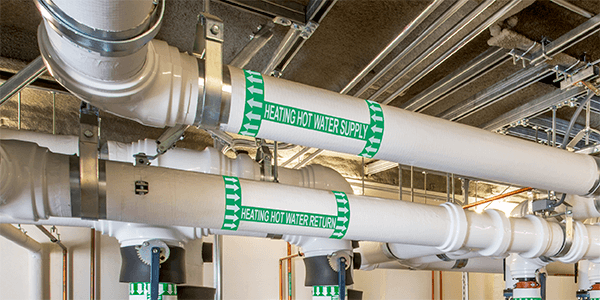
Don’t Just Label It—Build a Pipe Marking Plan That Works
Why is Pipe Marking Critical for Safety and Compliance? In industrial environments, whether dealing with ...
Read.png)

